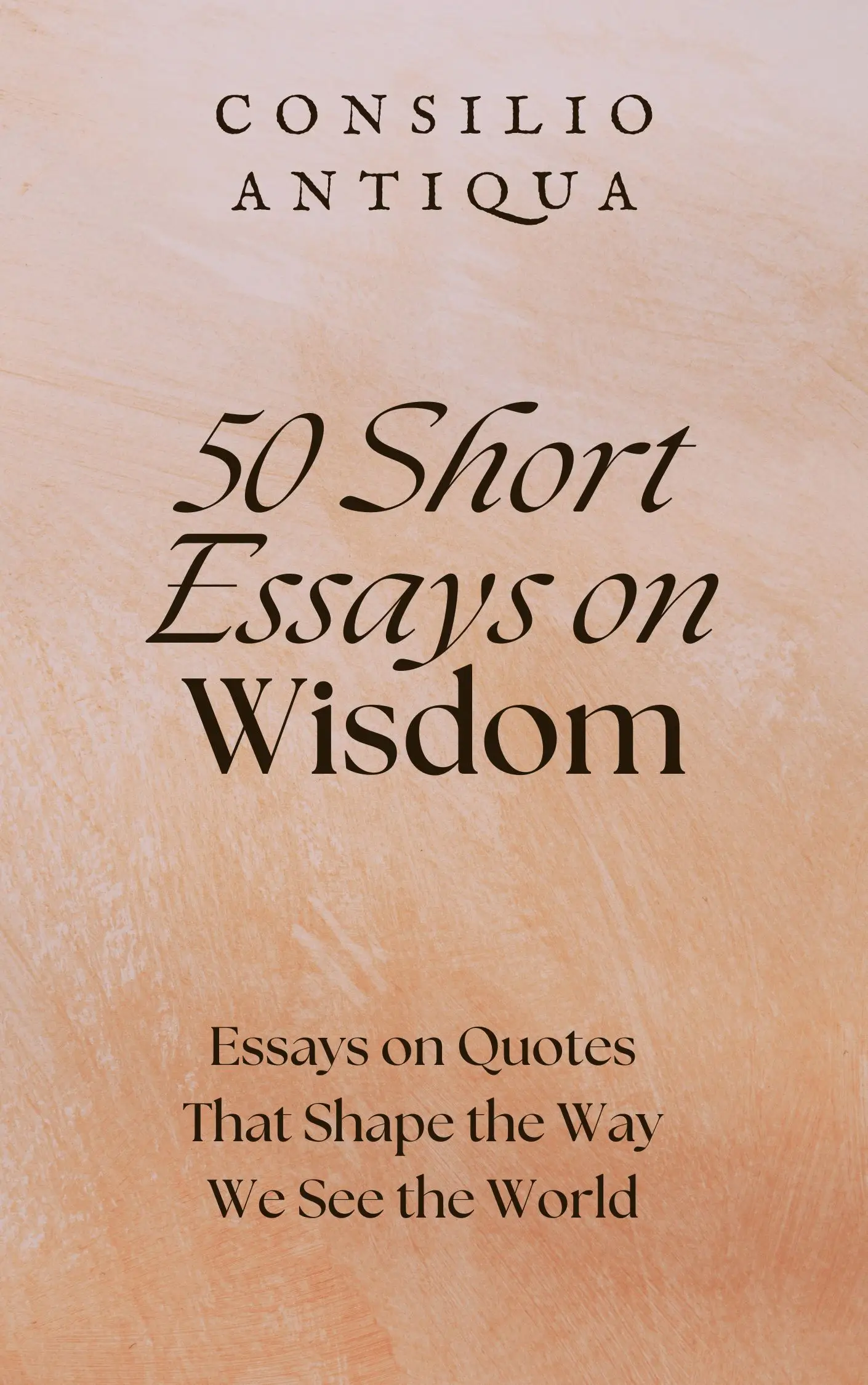
50 Short Essays on Wisdom | The Unmown Field
The Unmown Field
"The grass is always greener on the other side," Ovid
The hum of discontent, a low thrum beneath the surface of daily life. We glimpse a life seemingly richer, more vibrant, and a familiar ache settles in our chests – the persistent whisper that somewhere else holds the key to happiness. This essay explores the enduring wisdom of Ovid's proverb, examining its historical roots and its surprisingly potent relevance in our hyper-connected, comparison-driven world.
Ovid's proverb, though concise, speaks volumes about the human condition. Its origins are lost in the mists of time, echoing across cultures and languages. The imagery is simple yet profound: a lush, inviting expanse of green, contrasting sharply with the familiar, perhaps slightly worn, grass beneath our feet. This imagery transcends mere horticulture; it speaks to the inherent human tendency to romanticize the unknown, to project onto the "other side" an idealized version of reality. Ancient philosophers, from the Stoics to the Buddhists, grappled with this same inclination, recognizing the insidious nature of dissatisfaction rooted in comparison.
The core wisdom lies in the recognition of this inherent bias. We are wired to seek what we lack, to perceive the shortcomings of our present while simultaneously idealizing the potential of the future. This is not inherently negative; the desire for growth and improvement is a powerful engine of progress. However, the proverb cautions against the trap of perpetual dissatisfaction, the endless chase of a mirage. True contentment, it suggests, is not found in the acquisition of more, but in the cultivation of appreciation for what already exists. The enduring power of this wisdom lies in its simple, yet profound, truth: happiness is not a destination, but a state of being.
In our modern world, this tendency is amplified tenfold. Social media, with its curated glimpses into seemingly perfect lives, fuels the illusion of the greener pasture. We scroll through images of exotic vacations, successful careers, and seemingly effortless happiness, fostering a sense of inadequacy and longing. The comparison trap ensnares us, whispering insidious doubts about our own choices and achievements. Consider the young professional, constantly comparing their career trajectory to that of their peers, or the parent, consumed by anxieties about their child's achievements compared to others. The "greener grass" becomes a symbol of societal pressure, a relentless reminder of perceived shortcomings.
Yet, the wisdom of the proverb offers a path forward. It's not about ignoring our aspirations or settling for less. Instead, it's about cultivating a mindful awareness of our present circumstances, appreciating the beauty and richness that often goes unnoticed in the relentless pursuit of "more." It's about nurturing gratitude for the relationships, experiences, and opportunities that already enrich our lives. It's about acknowledging the inherent imperfections of any situation, including the "other side" we so readily romanticize.
Perhaps the key lies in shifting our focus from the unattainable green of the distant field to the potential within the field we currently inhabit. What seeds of joy, growth, and contentment are already present? What nourishment can we cultivate in our own lives, rather than constantly seeking it elsewhere? What if, instead of chasing the illusion of greener grass, we tended to the garden we already possess?
The proverb, then, is not a condemnation of ambition, but a gentle reminder to cultivate contentment amidst the striving. It's a call to pause, to breathe, to appreciate the present moment before the relentless pursuit of a future that may never fully satisfy. The grass may appear greener elsewhere, but the richness of our own lives often lies hidden, waiting to be discovered, not in a distant field, but within the unmown field of our own hearts.
